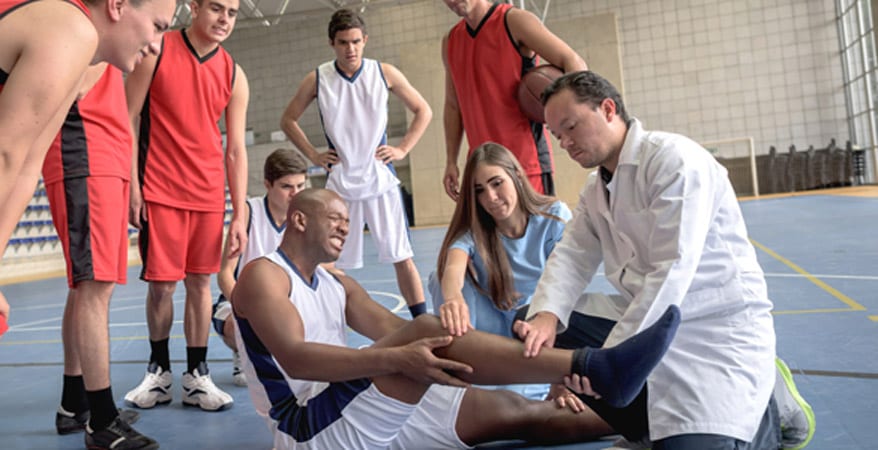
Sports medicine, also known as sports and exercise medicine (SEM), is a medical subspecialty that deals with physical fitness and the prevention and treatment of sports- and exercise-related injuries and illnesses. It is a subspecialty recognized by the American Board of Medical Subspecialties and by Medicare.
Sports Medicine Healthcare Practitioners
Sports medicine healthcare providers may be certified in internal medicine, family medicine, emergency medicine, or another specialty, allowing them to treat patients who have sustained injuries while exercising, training or playing sports.
Sports medicine physicians may serve as team physicians for sports teams at the youth level as well as for teams part of the NCAA, NFL, MLB, NBA, WNBA, MLS and NHL. Sports medicine physicians may also work with Olympic athletes. However, sports medicine physicians may work with non-athletes as well.
Physicians who practice sports medicine have undergone extensive training and certification:
- Board Certified in Emergency Medicine, Internal Medicine, Family Medicine, Pediatrics or Physical Medicine/Rehabilitation
- Completed one to two years of additional fellowship training in Sports Medicine
- Passed a national Sports Medicine certification examination allowing them to hold a Certificate of Added Qualification in Sports Medicine
- Committed to continuing medical education activities and re-certification via re-examination every 10 years
- Qualified to lead Sports Medicine teams, which may include specialty physicians and surgeons, physical therapists, athletic trainers, coaches and other personnel


Sports Medicine Physicians are trained in the following non-musculoskeletal aspects of sports medicine:
- Concussion (mild traumatic brain injury) and other head injuries
- Chronic or acute illnesses, such as asthma, diabetes or infectious mononucleosis
- Injury prevention
- Exercise prescription for patients desiring to improve their physical health
- Nutrition, supplements and ergogenic aids
- Performance issues
- The process of returning to athletic activities following an injury or illness
- Safe strength training techniques and conditioning exercises
- Healthy lifestyle promotion
Orthopedic surgeons trained in sports medicine are qualified to perform surgery treating sports-related illnesses and injuries.
Physical therapists assist in the recovery process by helping patients strengthen their muscles and regain a normal range of motion.
Certified athletic trainers provide rehabilitative programs designed to help athletes regain their strength and reduce their risk of future injuries.
Nutritionists are involved in developing eating plans that aid in weight management.
Sports psychologists serve the mental and emotional needs of athletes and sports enthusiasts. Many sports teams employ a full-time psychologist to help team members prepare for a game or competition and overcome emotional roadblocks. Sports psychologists teach athletes methods to reduce anxiety and improve focus in ways that are specific to their sport. They may use psychotherapy, stress management and goal-setting to help athletes stay emotionally-healthy and perform at their best during a competition or game.
Conditions Treated by Sports Medicine Specialists
Sports medicine specialists may treat the following physical conditions:
- Acute trauma, such as fractures, sprains, strains, ruptures, tears and dislocations
- Chronic overuse injuries, such as tendonitis, tendinitis, tendinopathy, shoulder instability, tennis elbow, degenerative diseases and overtraining syndrome
The sports medicine subspecialty draws on general medical knowledge as well as principles of:
- Sports science
- Exercise physiology
- Orthopedics
- Biomechanics
- Sports nutrition
- Sports psychology


